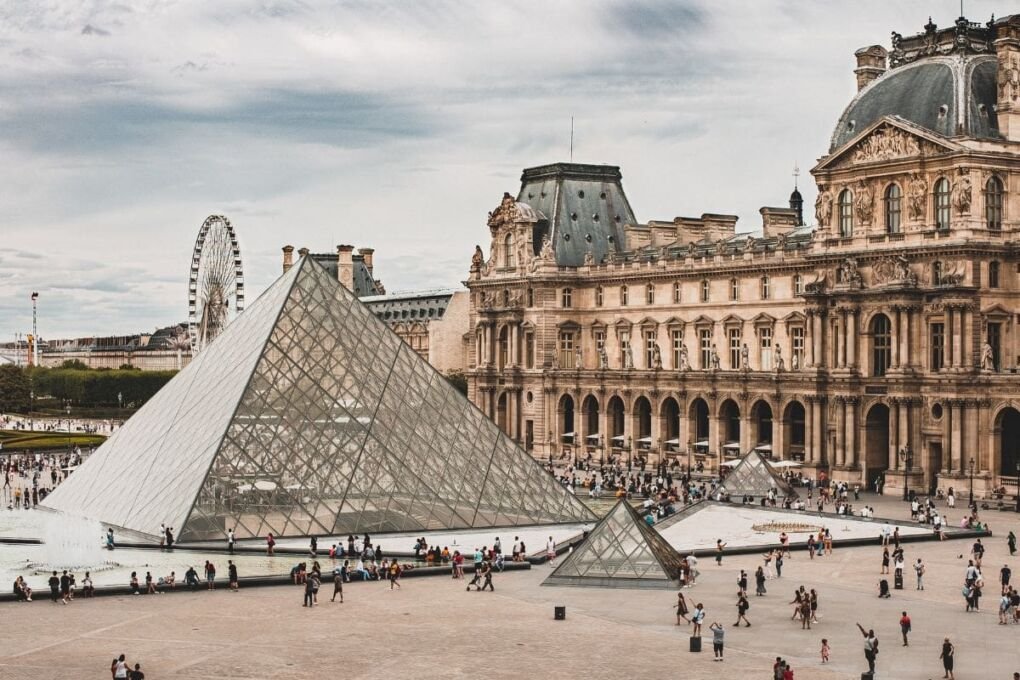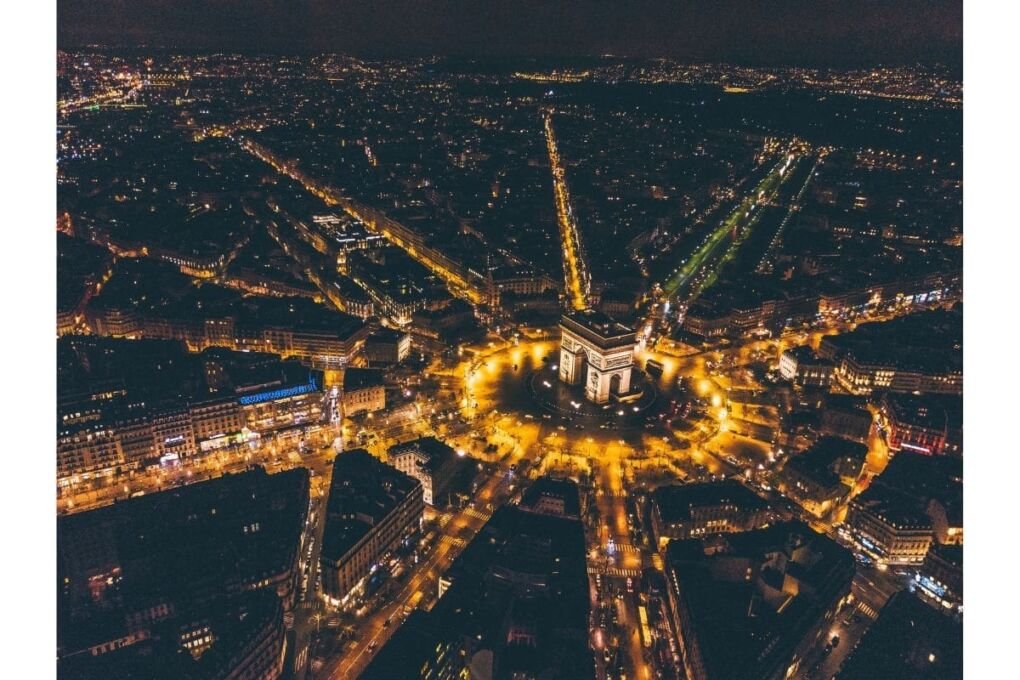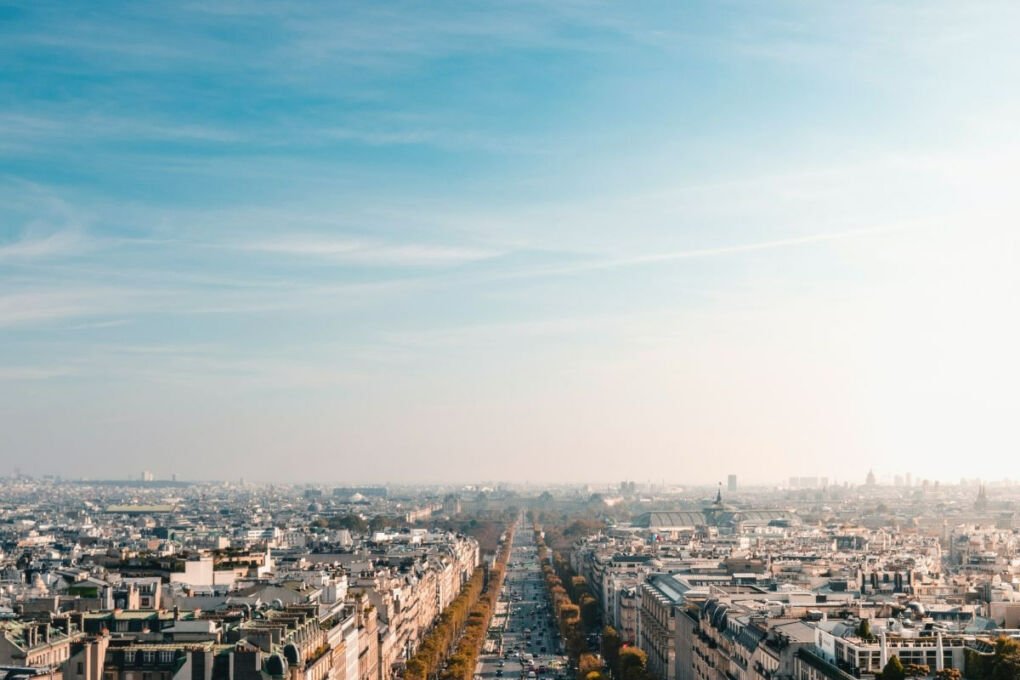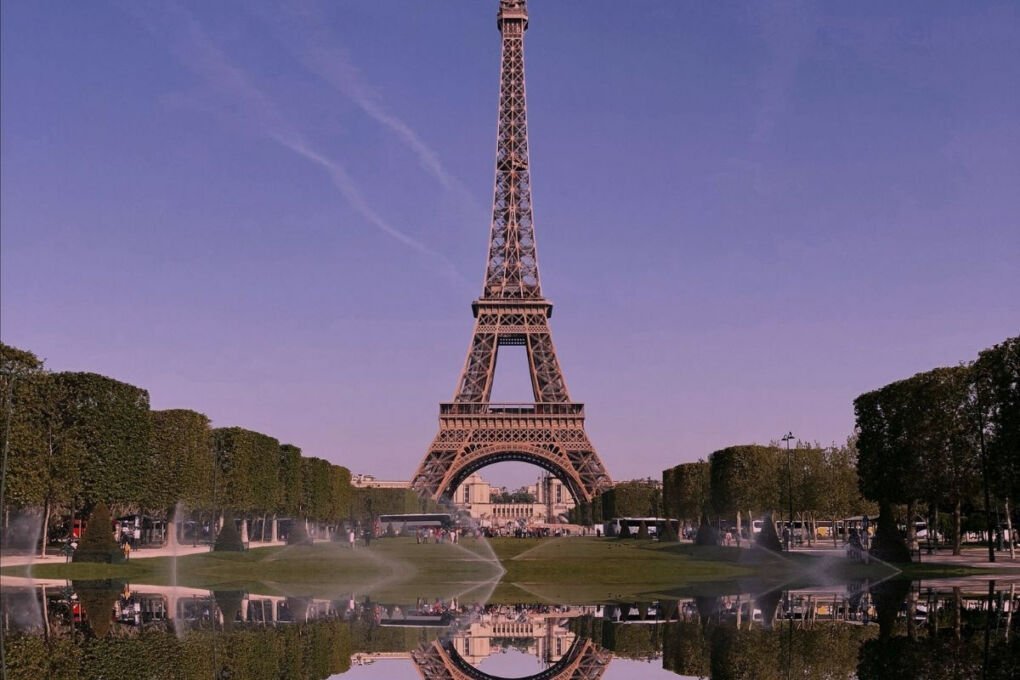Paris is the city of love and light. The home of decadent food. It’s primed with cafes and patisseries on every corner, inviting you in and daring you to indulge. It’s known for its love for the arts, educational museums, marvelous cathedrals, and jaw-dropping fashion.
It’s the mecca for all things fashion, you can find all of the luxury brands there. If fashion isn’t for you, Paris’ elegant palaces are sure to stun you. With its myriad of landmarks, you’ll never run out of things to see. I’m sure you’re wondering, “Is Paris Safe?” This guide will help answer that for you.
Boasting some of the world’s finest cuisine, Paris has something for everyone. For those with more of a sweet tooth, the city has some of the finest patisseries for you to try, like Le Meurice.
If fine dining isn’t quite for you, then perhaps a trip to one of the city’s landmarks will be. The Louvre Museum is one of the most famous Parisian attractions. The museum has artifacts from all around the world and holds famous paintings like The Mona Lisa.

Paris’ most recognizable landmark is The Eiffel Tower. There are two restaurants and an observation deck inside this UNESCO WORLD HERITAGE SITE. You can also picnic right in front of the tower as you soak in the Parisian air 3 days in Paris is perfect for helping you plan your trip.
Table of Contents
ToggleIs Paris Dangerous?
According to the Numbeo safety index, France is ranked as the 107th safest country in the world. With the current wave of civil unrest, you may be asking yourself if it should still be on your travel list. The answer is yes.
The protests happening throughout the country are a cause for concern, however, they are also fairly easy to avoid. You would do well to stay clear of any acts of civil unrest.
The protests are said to gain traction in the nighttime with fireworks and looting, but the French people aren’t interested in attacking other people. It is scary to think of if you’ve never experienced it, however, there really is no threat to you. Remain calm and stay in areas where there haven’t been protests.

Dangerous Areas In Paris
19th Arrondissement
The 19th Arrondissement isn’t particularly dangerous, however, it’s known for crime and drugs. During the summer, people flock there in the day to enjoy its large parks, making it safer for tourists.
Buttes Chaumont Parc is a park that you should avoid in the colder months due to the lack of people there, which will leave you isolated. In the evenings, avoid Danube, Mouzaia, and Stalingrad. Be cautious when in these areas. You’re likely to be pickpocketed, encounter a drunk homeless person, witness a crime, or fall victim to one.
10th Arrondissement
The 10th Arrondissement is perfectly safe during the day. At night, however, you should remain alert. Two of the biggest international railway stations are located in this neighborhood and as a result, the surrounding areas aren’t deemed safe at night.
The stations are located in the northern part of the Arrondissement which has been deemed dubious by locals. If you find yourself in this area during the nighttime, expect to be offered drugs, met with drunk people, and people fighting.
This combination makes it one of Paris’ more uninviting areas.
Is It Safe to Live in Paris?
Paris is rated as the 15th safest city in Europe. The city’s nightlife is one to be heralded, as you’ll find most of its patrons out and about on any given night. Making it safe for you to go out and explore its magnetic restaurants, clubs, and shows.

The Parisian public transport system is convenient and safe to use. Getting a metro pass will make wandering about easier for you. For any LGBTQIA+ members, Paris is one of the safest cities for the queer community. They have a pride parade and multiple gay bars throughout the city.
Safe Areas in Paris
Le Marais
Located in the 3rd and 4th Arrondissement, this neighborhood is known for its stunning mansions, beautiful courtyards, and numerous galleries. Its maze-like streets make it perfect for exploring its old-world architecture and hidden gardens.
Le Marais is home to one of the city’s oldest squares and first public park, Place de Vosges. It also holds one of the biggest and busiest museums, The Pompidou Center. This museum is the home of modern art with the works of artists like Klee, Picasso, and Andy Warhol.
This neighborhood also has the Museum of Jewish Art and History, which captures French Jewish history.

Saint Germain-de-Pres
This neighborhood in the 6th Arrondissement was home to many writers, artists, and painters. Now it’s one of the hot spots for shopping, with a multitude of cafes, galleries, markets, and theaters at your doorstep.
Saint Germain is home to Les Deux Magots, the famous literary café. It will be more costly than the typical Parisian café, but the delectable comfort food will be worth it. Saint Germain also houses Eglise Saint-Sulpice, a 17th-century church that is the second largest in Paris. The church was also featured in both the book and movie versions of The Da Vinci Code.

8th Arrondissement
The Arrondissement is home to the Champs-Elysees which is an avenue between Charles de Gaulle and the Palace de la Concorde. This is also home to one of Paris’ most famous monuments, the Arc de Triomphe.
The arc is the center with 12 diverging avenues, it was to serve as a gateway to the city. For any fashion lover out there, it’s also home to the Louis Vuitton flagship store. There will be a line to get in, but it’s well worth it.
You can also find The Flame of The Statue of Liberty in this neighborhood. It is a full replica of the flame found atop the statue in New York.
Warnings and Dangers in Paris
Paris is notorious for its pickpockets, so be cautious when you’re out exploring. They tend to target train stations and major tourist sites. Be careful of vehicles in the city. Drivers tend to drive quite aggressively, and it can be intimidating if you aren’t expecting it. Always be vigilant when crossing the street.

Paris is rife with scams, one of the more popular ones being the gold ring scam, when someone will demand that you pay them for pretending to find your ring. It’s best not to wear anything flashy that would make someone think you own expensive jewelry to be found.
Overall Travel Risk: 3/10
Paris isn’t a dangerous city or a place where you should feel unsafe. If you avoid the more unsavory neighborhoods and stay vigilant, you should have an amazing time there. With the more dangerous areas being on the outskirts of the city center, you won’t have much to worry about.
Be aware of the areas to avoid at night and keep your belongings close to you in tourist hot spots. The current protests won’t hinder any plans you have to visit Paris. It’s best to avoid the areas where they’re being held and remember that the people don’t want to hurt you, so don’t go looking for trouble.

Pickpockets
The risk of this is exceptionally high. Pickpockets are everywhere in Paris, hoping to catch tourists unaware. To avoid falling victim to this, ensure that you keep your bag in front of you, even if it’s a backpack.
If you have bag locks, use them. This will help ease your concern, and you won’t have to be on constant alert. They usually work in groups, so don’t fall prey by allowing yourself to be distracted. They may even pretend to be collecting money for charity. Stay focused on what you’re doing, and you should be fine.
Civil Unrest
With the rising protests in the country, it’s important to know what to avoid. Though the risk is minimal. During the day, you shouldn’t encounter any protests as they mostly happen in the evenings.
The best way to guard yourself against these is to know the areas where they’re likely to happen. They’ve mostly avoided tourist hot spots and city centers. If you find yourself in the face of a protest, remain calm and hold your belongings close.
Petty criminals thrive off of such occasions. Make your way to where you’re going or try to get somewhere that will be safe, perhaps a neighboring Arrondissement.
Traveling As A Female
The risk for women in Paris is low. If you find yourself traveling alone or as a group of women, you will be safe in the French capital. There are a few things to avoid to ensure maximum safety.
If traveling alone, don’t go to any train or metro stations in the evenings. Rather find nighttime activities to do that are within walking distance. Avoid eye contact with men as well; they will see it as an invite to approach you.
So watch your gaze, and you’ll avoid any awkward encounters.

Tips for Staying Safe in Paris
The city of lights isn’t without its fair share of dangers. Like any major city, it has areas that you should avoid. If you find yourself in those areas, do your best to get out. If you’re met with hostility or danger, comply.
French police don’t speak much English, so try and learn a few French phrases that could help you in the face of danger. Don’t carry too much cash with you, and don’t ever show that you have a lot of cash on you. Even when withdrawing cash, try your best to conceal how much you really have.
Here are five useful tips for visiting Paris:
- Walk at night. In the evening it would be best for you to walk when going out. Try to find something to do that is within walking distance so that you don’t have to take a metro or a train.
- Buy tickets beforehand. When going to various museums, galleries, and monuments, buy your tickets before you go to them. This helps you avoid having to pay there and likely being pickpocketed.
- Pockets should be empty. Avoid putting anything in your pockets, especially your phone and your wallet. This makes it easier for belongings to be taken.
- Don’t stand by metro doors. When you enter the metro, take a seat far from the doors. People have been known to have their bags snatched from them just before the doors close.
- Don’t be flashy. It’s best to keep your expensive jewelry at home or in your room. The flashier you are, the higher the risk of you being targeted.

Is Paris Safe?│Frequently Asked Questions
Is Tap Water Safe To Drink?
Tap water is perfectly safe to drink in Paris. The water quality is good, and there are public water fountains situated all over the city. You can trust the tap water from your hotel room or apartment as well as the tap water from cafes and restaurants. There are also sparkling water fountains if plain water isn’t for you.
Is It Safe To Walk at Night?
The city is safe for you to walk at night. In fact, you’re encouraged to walk at night as you’ll likely be safer. Just be sure to avoid walking in dangerous neighborhoods. When walking at night, it’s pertinent to have your route already mapped out so that you don’t have to pull out your phone to assist you.
Go to places that are nearby in the evenings, luckily there are plenty of clubs and restaurants in each of the Arrondissements.
Is Public Transport Safe?
Yes. Public transport is quite safe in Paris. If you are on the metro, a bus, or the train, hold your belongings close to you to avoid snatch and grabs. Aside from walking, public transport is what most people opt to use due to its convenience and reliability.
Do I Need Travel Insurance?
Yes, you absolutely need travel insurance. When traveling anywhere, you should have travel insurance. It’s a good security blanket to have. Anything can happen, and it’s better to know that you’re covered.
